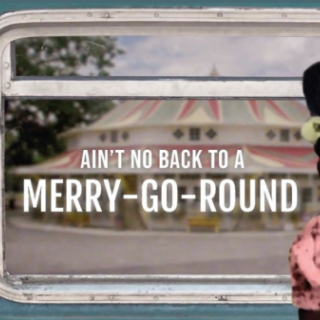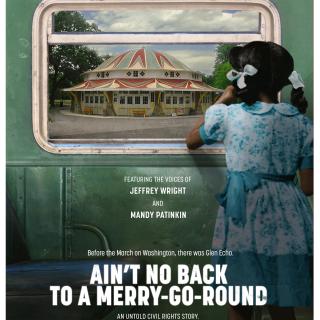Advertisement
Is there such a thing as too much sex?
In the very first scene of Love, director/screenwriter Gaspar Noe lets us know he’s leaving nothing to the imagination. Lovers Murphy (Karl Glusman) and Electra (Aomi Muyock) are shown in bed manually pleasuring each other.
The scene is filmed both beautifully and graphically. Everything—and I do mean everything—is out in the open.
For the next two hours and 14 minutes, Noe keeps everything out in the open with one sex scene after another, some of them even more explicit than the first. As if to remind us that we’re seeing all of this in 3-D, he even includes a close-up of a penis just as it ejaculates right into our expectant faces.
Would you believe me if I said the main product of all these adult-rated escapades is utter boredom?
The first problem is that we don’t care a fig about the characters whose most private moments are playing out in front of us. How could we, when we see almost nothing but their most private moments?
Murphy is an American who came to Paris to study filmmaking, but he never seems to actually study film. Likewise, Electra is an artist, but she seems to devote no time to making art. Instead, they spend most of their time either making love or planning to make love with each other and/or other people.
The thin plot is laid out within the first 10 minutes: Murphy is living with Omi (Klara Kristin) and their young son when he gets a frantic phone call from Nora (Isabelle Nicou), mother of Electra. Nora says she hasn’t heard from her daughter in months and worries she may have done herself harm. This reawakens Murphy’s longing for his ex-girlfriend, who broke up with him after he accidentally impregnated Omi, their next-door neighbor.
Unfortunately, this longing is expressed through voiced-over thoughts that show Murphy is a childish, self-centered man who wallows in self-pity. There might be an actor somewhere who could make us care about such a character, but Glusman isn’t that actor. Murphy’s whining is as annoying as it is interminable.
Nor do we care much more about Electra, even though Muyock displays more acting chops than her co-star. The reputed artist simply comes off as a self-destructive type who is as addicted to drugs as she is to pushing sexual boundaries.
Through flashbacks, we eventually learn how Electra and Murphy met and began pushing those boundaries. These scenes are marked by dark but striking 3-D photography (courtesy of cinematographer Benoit Debie) and pedestrian dialogue (“What doesn’t kill you makes you stronger”).
Mostly, they’re marked by lots and lots of sex—sex that isn’t very interesting beyond being mildly titillating. As lengthy as these scenes are, they add nothing to our understanding of the characters other than revealing that they’re in good physical condition.
In an interview, Noe has explained that he gave the actors little direction for these scenes—he simply put them in position and told them to go at it. Obviously, that wasn’t enough.
Noe, who was born in Argentina but now lives in France, has a reputation for challenging his audiences. With Love, he mainly challenges them to stay awake.
Rating: 2 stars (out of 5)
Love (not rated) opens Friday (Nov. 6) at the Gateway Film Center, 1550 N. High St. For more information, visit gatewayfilmcenter.org.
‘Vanguard of the Revolution’ remembered
Long before cellphone cameras were used to record police abuse, the Black Panthers tackled the issue. In Oakland, Calif., in the late 1960s, they did this by arming themselves and patrolling inner-city streets.
That effort helped to launch a national and even international “party” that played a controversial role in the civil rights movement. The group is examined with a sympathetic but critical eye in the documentary The Black Panthers: Vanguard of the Revolution.
Director Stanley Nelson interviews many people who were involved in the Panthers, as well as former officials and police officers who were pitted against them. He succeeds in painting a textured portrait of the group’s activities and its all-too-fallible leaders.
The common public perception of a Black Panther was of a macho male sporting an afro, a leather jacket and a beret. (In an interview, civil rights leader Julian Bond notes wryly that all urban blacks wanted to look like a Panther.) However, one of the film’s most surprising revelations is that women eventually dominated its ranks. And some of them were just as sensitive to sexual inequality as they were to racial prejudice, pressuring the leadership to promote non-sexist behavior.
Though the Panthers had a just cause in their fight against institutional racism, they faced two big problems. The first was enemies in high places, particularly FBI director J. Edgar Hoover. Hoover launched a secret effort to undermine the group by, among other things, fomenting suspicion and discord among its leaders.
The second, and perhaps more damaging, problem was the leaders themselves, some of whom were prone to rash statements, power trips and even criminal behavior. The documentary delves into the resulting fallout but leaves out some of the most troubling accusations. That’s partly because it largely wraps up its history after Panther leader Bobby Seale’s unsuccessful run for mayor of Oakland in 1973.
Perhaps that’s wise. The group struggled on until the early 1980s, but it had lost much of the power and influence it once had in the black community. Rather than reporting on the Panthers’ waning years, Nelson’s documentary focuses on the brief span of time during which they could truly be called the “vanguard of the revolution.”
Rating: 4 stars (out of 5)
The Black Panthers: Vanguard of the Revolution (not rated) opened Oct. 30 at the Gateway Film Center.




